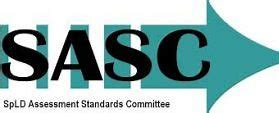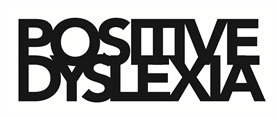General Questions
-
How do I arrange an assessment?
Please use the contact form or email me for initial enquires.
-
What are your business hours?
Assessments are available online from Monday to Friday. Although, an assessment is usually carried out in the morning (when the person is less tired ), there is some flexibility around the start time.
I am unable to do assessments in the evening or at weekends.
-
Will I get a report with recommendations ?
Following the assessment, I will write a full diagnostic report with a diagnosis of dyslexia, if appropriate. Whether there is a formal diagnosis or not, each report will contain detailed recommendations.
Reports for the DSA, university and the workplace will give recommendations for exams.
-
Do I need to provide any information before the assessment?
Yes, you will need to fill in a background form which is available on the BACKGROUND FORM tab and can be submitted via the submit button. I can also send you a Word version of the background form if preferred.
I will also ask you to complete a booking pack.
If you feel you have difficulties connected to ADHD or dyspraxia, I will also ask you to fill in a further questionnaire.
I will need this information completing as soon as you book a date for the assessment and at least 2 weeks before the assessment or the assessment may be cancelled.
-
How long does the assessment take?
The assessment will take place via Zoom and takes between 2 to 3 hours. Occasionally, it may take longer than 3 hours depending on what assessments are used.
-
Do you need any information from other professionals or previous reports?
Yes please !
The more information I have in advance of the assessment , the better.
You can either email, post or scan it to me or even take photos if that works better for you.
-
Do you carry out assessments with children?
I am currently not doing assessments for children as I feel that younger children usually benefit from a face to face assessment, rather than doing an online assessment which is often more convenient for adults.
The exception is young people in Year 12 and 13 who are in the sixth form or at college, including those students who will be starting a university course at some point in the future.
It is important that Year 12 and 13 students contact learning support / the SENCO to ask about exam arrangements (unless you already have these in place) as I can only use the results from my assessment with you to fill in a Form 8, if I have established a working relationship with your school or college and they have copies of my qualifications. They would also need to agree to using the results of the assessment on the Form 8 before the dyslexia assessment actually takes place.
I would also need the Form 8 in advance as it is not possible for the school/college to send me the Form 8 after the assessment has taken place as this contravenes JCQ regulations. The SENCO would firstly fill in relevent parts of the Form 8 before sending it to me so that I can add the test results from the dyslexia assessment. The SENCO would then decide on which exam arrangements, if any, are allowed.
-
Do I need a recent eyetest before coming to the assessment?
You will need to make sure that a recent eyesight test has been completed within the last 2 years as uncorrected problems with eyesight can affect some of the assessment results making them invalid.
-
Text moves around when I read or goes blurry? What would you advise?
The background form that I ask you to fill in will ask a series of questions about your vision.
If your responses in the background form suggest that you have significant visual processing difficulties, you should also seek further advice from a visual difficulties specialist (more details of a suitable behaviour optometerist can be found here : http://babo.co.uk/). I will also provide additional referral advice, with sign posts on where to seek additional advice, in your report.
It is also important that you have had a recent eyesight test within the last 2 years so that if you need glasses when reading, these can be used during the assessment.
-
Can you carry out assessments for dyspraxia (17+ only)?
If you feel that you may have dyspraxia, the assessment can also look at the impact that coordination difficulties may have on your studies at university or in your current job role.
Dyspraxia can occur alongside dyslexia so the assessment will consider both but sometimes dyspraxia is independent of dyslexia and the assessment would also consider this.
If you feel this may be a problem, I will send you a dyspraxia checklist when you book your assessment. The assessment can identify problems related to dyspraxia in relation to education and work so that recommendations can be made, including for exams and the DSA or Access to Work. It is not, however, a medical diagnosis.
Please note this type of assessment is not suitable for under 16 year olds who would need to be assessed via a occupational therapist or a paediatric referral via the GP or school.
-
Are the results of an online assessment as reliable as a face to face assessment?
Absolutely. In fact many adults prefer doing the assessment online rather than face to face as it is often more convenient and removes the stress and cost of travelling, as well as reducing travel time to zero.
-
Can an online assessment provide a 'diagnosis' of dyslexia?
Yes, an online assessment can identify dyslexia in the same way as a face to face assessment. The report produced can be used as evidence for exam arrangements and for applying for the DSA and for the workplace and Access to Work.
-
Can you diagnose ADHD?
My assessments consider the whole picture when it comes to SpLDs as these often overlap with each other.
I can examine whether you display significant characteristics of ADHD so that you are able to access support at school, college or university.
You will also be able to use this identification of significant attention and concentration difficulties (if identified during the assessment process and within the report) when seeking support via the DSA.
I am not able to provide a medical diagnosis or precribe medication.
Only a medically qualified professional who has specialist training in the area of ADHD, as well as qualifications in the prescribing of ADHD medication can provide a medical diagnosis of ADHD.
This includes psychiatrists, doctors and some specialist nurse practioners and pharmacists (who must have appropriate training and qualifications).
Surrey, London, Middlesex, Walton on Thames, Staines, Sunbury, Teddington, Kingston, Twickenham, Richmond, Caterham, Reigate, Redhill, Weybridge, Woking, Guildford, Dorking, Leatherhead, Chessington, Epsom, Shepperton, Walton on Thames, West Byfleet, Byfleet, Chertsey, Addlestone, Hersham, East Molesey, West Molesey, Esher, Lightwater, Bracknell, Sussex, Hertfordshire, Buckinghamshire, Kent, Bedfordshire, Hampshire, Gloucestershire, Cornwall, Devon, Yorkshire, East Midlands, Lancashire, Cumbria, Northumbria, Manchester, Liverpool, Leeds, Sheffield, Nottingham, Durham, Newcastle, Canterbury, Maidstone, Rochester, Dagenham, East Anglia, Norfolk, Suffolk, Essex, Cambridgeshire, Cambridge, Oxfordshire, Oxford, Brighton, Southampton, Portsmouth, Plymouth, Chichester, Derby, Northampton, Luton, Bedford, Basingstoke, Reading, Chester, Lincoln, Exeter, Bedford, Dorset, Bournemouth, Norwich,Coventry,Leicestershire,Leicester and all areas of the UK.
Dr. Jayne Cunningham PhD, MA, BA (Hons), PGCE, APC (Patoss)
QUICK LINKS
SERVICES
Dyslexia Assessments for Adults (16 years + )
Email: positivedyslexiasurrey@yahoo.com

Full member of Patoss
SASC approved assessor

